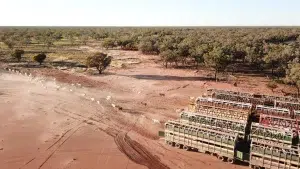By Dani Stüssi, CEO of RealUnit Schweiz AG, originally published in “Die Freien”, Dec. 2022 2022
Today’s debt-based monetary system is inherently unjust and has had its day. What are the requirements for a new, fairer system? What alternative currencies already exist?
Many people have to work more and more to be able to meet their living expenses, because money is constantly losing purchasing power. As a result, valuable time for friends and family is lost. Increased work stress has a negative impact on our health. Today’s debt-based fiat monetary system primarily serves the power elite and keeps much of the population subjugated. The gap between rich and poor is widening.
Changing times - the financial System is in upheaval
The combination of the numerous challenges we face today is extremely dangerous. More and more experts are warning that another financial crisis is imminent. Only recently, the Bank of England prevented the collapse of the British pension system with an emergency intervention. Politicians and central banks worldwide are increasingly powerless to act. Debt creation at the expense of the next generation and galloping inflation are the consequences. The unprecedented creation of money out of thin air and the politically motivated manipulation of interest rates by central banks have a direct negative impact on the value of our money. Central banks can no longer act as saviors in times of need, as they did during the 2008 financial crisis. Given the current uphill fight against inflation, a sharp reduction in interest rates is virtually impossible, as this would cause prices to surge even faster. It is probably only a matter of time before the current debt-based monetary system collapses. While it is difficult to pinpoint the exact time and trigger, there is no doubt that the moment to act is now to protect one’s savings from the impending financial crisis.
“Money in the bank”, but not legal tender
Many people do not know that the money they keep in the bank is not legal tender at all. Article 2 of the Federal Act on Currency and Payment Instruments lists as legal tender only coins and banknotes, as well as Swiss franc sight deposits at the Swiss National Bank. The money in our bank accounts is actually a loan to our bank, which it uses for its own purposes. This money is called “book money”. If confidence in the banks dwindles due to a new financial crisis and the banks fear a bank run, they will severely restrict cash withdrawals for their own protection. After all, only about 5 percent of our credit balance could be paid out physically. Thanks to depositor protection, CHF 100,000 per bank and per person is guaranteed by the state. However, in the event of a bank failure, the federal government would only be able to finance this depositor protection by massively increasing the national debt, which would necessitate future tax increases. Those who want to protect themselves from the impact of such a scenario would do well to withdraw their savings from the banks (and to do so today rather than tomorrow) and keep only one account for everyday transactions.
Currency reform and introduction of central bank digital currencies
Today’s financial elite is aware of the end of the debt money system and has already developed a successor solution: digital central bank money (CBDC). Today’s financial elite is well aware of the looming demise of the current monetary system and has already developed a successor plan: central bank digital currencies (CBDC). Under this system, all citizens will have to hold an account directly with their nation’s central bank – in Switzerland’s case, the SNB. However, this entails great dangers. The moment governments can access our accounts, is the moment our civil liberties and financial freedom come under direct threat. People with dissenting opinions or “disagreeable” views can be excluded from the system. We already have precedent for this: In response to the trucker protests against the covid measures, the Canadian government froze over 200 bank accounts of protesters and donors associated with the “Freedom Convoy” in the fall of 2021. This massive encroachment on property rights in a liberal, democratic country like Canada was a red flag.
Requirements for a new, free monetary system
No central bank and no government should be allowed to create money out of nothing and exercise control over it in the future. Only the account holder and authorized representatives should have direct access to any private account. This way we would regain our financial sovereignty and self-determination. The new currency should be backed by real physical assets that people have confidence in. The purchasing power of the currency should adjust to the economic performance of the corresponding country. The new currency must be technically secure and directly transferable from person to person internationally in a quick and efficient manner. The money should be actively circulating and should not contain any reward for hoarding in the form of interest. All stakeholders should have a democratic say in planned changes to the system. If all these requirements are met, we will no longer need intermediaries such as banks or credit card companies that make money from the transactions. The monetary system becomes fairer, more socially-minded and actually, practically serves the people. The direct access to his account should have only the owner and the authorized persons. This way we would regain our financial freedom and self-determination. The new currency is to be backed by real physical assets in whose value people have confidence. Purchasing power adjusts to the economic performance of the corresponding country. The new currency must be technically secure and capable of being transferred directly from person to person internationally at high speed. Money should be actively circulating and should not contain rewards for hoarding in the form of interest. All stakeholders should have a democratic say in planned changes to the system. If all these requirements are met, we no longer need intermediaries such as banks or credit card companies that make money from the transactions. The monetary system becomes fairer, more social – and serves the people.
A precious metals Renaissance
In addition to their use in jewelry or industrial products, gold and silver possess another property that is once again in greater demand today: they enjoy great trust worldwide as a safe asset in times of crisis, since they have been used for centuries as a means of exchange and payment, in the form of coins. However, this physical form also brings disadvantages. The value fluctuates daily and does not fulfill one of the basic functions of money, that of a unit of account. Also, a large fireproof safe is required for safekeeping and sending coins by mail is expensive and time-consuming. Therefore, physical precious metals are suitable as a local medium of exchange in a crisis situation, but not as the basis of a future monetary system.
Alternative Currencies are already a reality
Recently, many alternative or complementary currencies have emerged thanks to regional networking and digitalization. For example, on a Swiss online exchange, products and services are paid for cashlessly with “Talent.” This promotes fair prices and the circular economy. A similar concept is “Sardex,” created during an economic crisis in Sardinia: Local entrepreneurs joined together to form a network and supported each other with their own digital currency by re-spending their money among themselves. This exciting idea is now already being adopted in other regions of Italy. The downside: 1 Sardex has a value of 1 euro and thus also continuously loses its purchasing power.
Another interesting concept are the “time banks”. These often involve community neighborly help, where the time spent is recorded and used as a medium of exchange. For example, for an hour of gardening, you can get an hour of massage in return within the network. The value of time is consistent for all people, regardless of education or work experience. Time banks are often used by retirees who want to improve their quality of life in old age and relieve caring relatives. This idea is very social-minded and can build bonds within communities, but has not yet found resonance among companies and the general population.
Do cryptocurrencies meet the requirements of a new and better monetary system?
The first and best known cryptocurrency is Bitcoin. The amount of money is limited by code and cannot be influenced by any central authority. The network of thousands of computers, which has been in existence for 13 years, has never been hacked and is considered the most secure database in the world thanks to the enormous amount of energy it consumes. However, because the number of its transactions is severely limited, Bitcoin is not used as a means of payment today, but primarily as a speculative vehicle. The high fluctuations in value (up to 85%) do not lend themselves to saving for most people, as they would not be able to sleep soundly in the event of a loss. Most other cryptocurrencies are even more speculative. The so-called stable coins are mostly backed by the euro or the US dollar and thus also lose purchasing power in the long term.
The RealUnit token meets many requirements
What is needed is an investment that offers the best possible protection against loss of value and financial crises. The RealUnit is such a solution, as it has as its most important goals the preservation of purchasing power of the assets and protection in crisis situations. By investing in physical gold and silver, as well as companies with healthy balance sheets and crisis-resistant business models, the aim is to ensure that assets retain their value – over generations. As an investor, you become an owner of RealUnit Schweiz AG and have a say in the general meeting. The RealUnit token uses bank-independent blockchain technology and can already be traded around the clock at realunit.ch and transferred from wallet to wallet. The vision is that the RealUnit will become a popular store of value and means of payment due to its stability, security and tradability. Most of the aforementioned requirements for a new monetary system are already met today. However, the RealUnit is currently not yet well-known enough to be used as a means of payment.
Regardless of when and how the current monetary system is replaced, we will have the freedom to choose from a variety of possible alternative currencies. The majority will decide which currency to put their trust in. This new money will serve the people and, compared to today’s system, hold us together and unite us in a positive, productive and constructive way.




